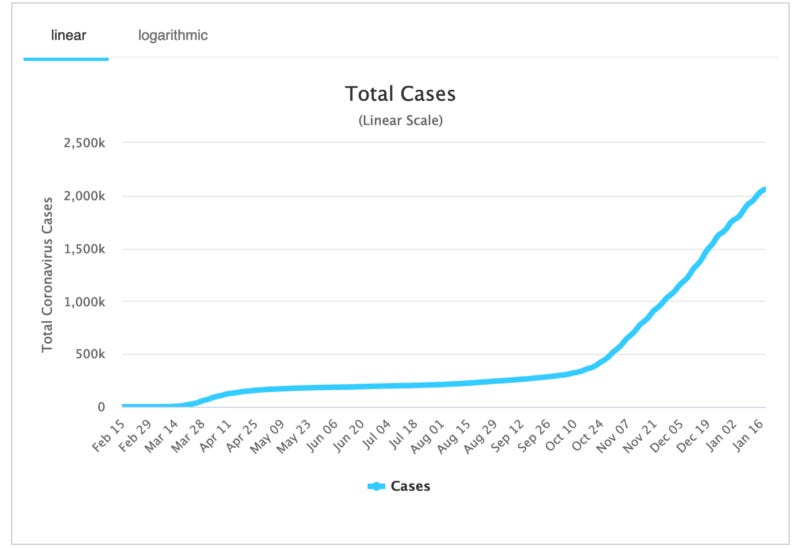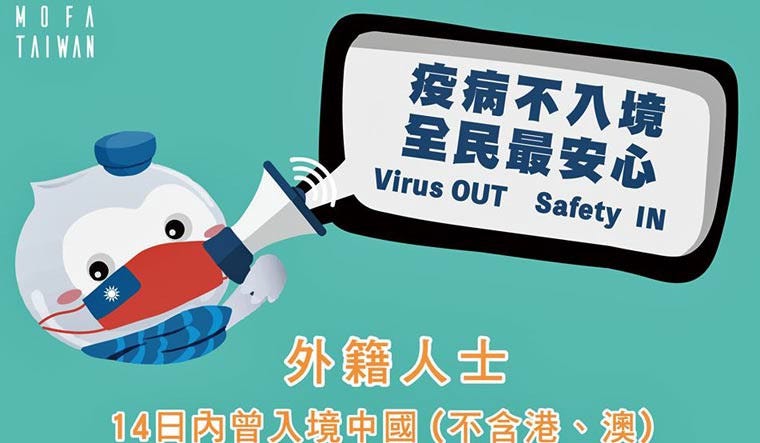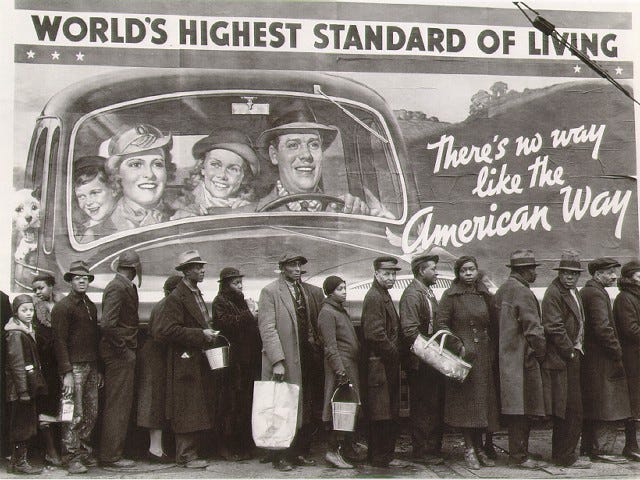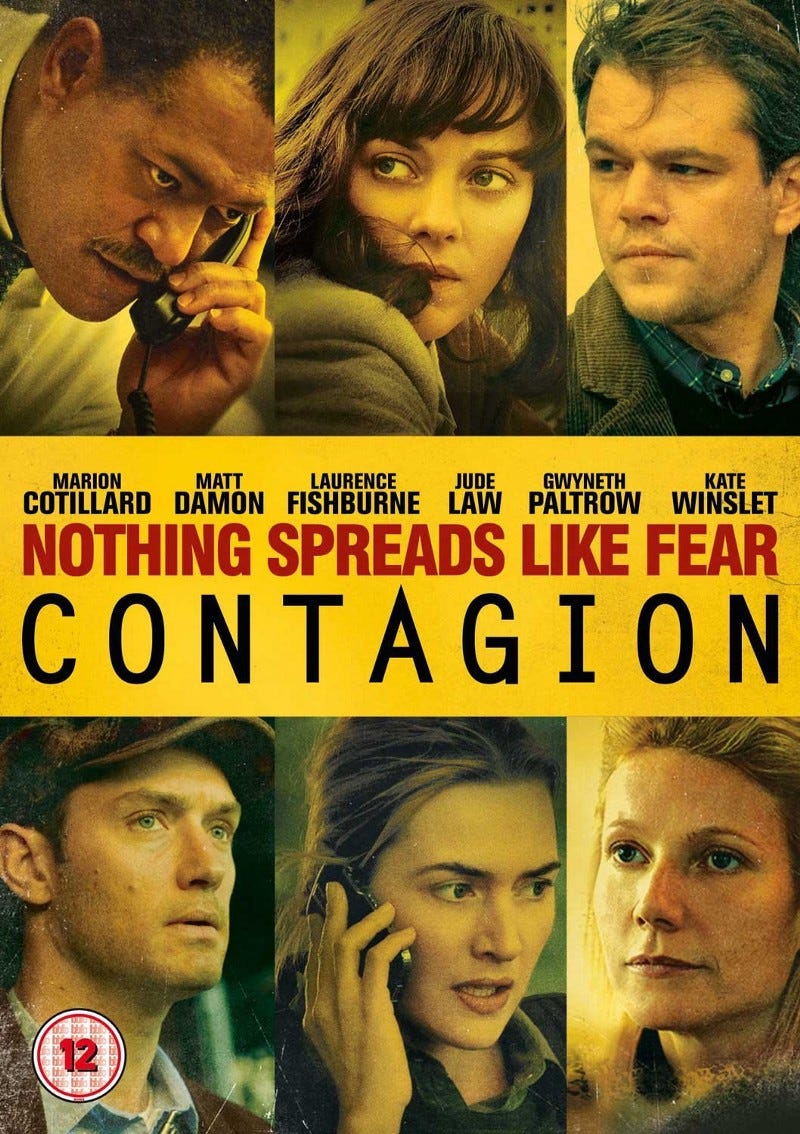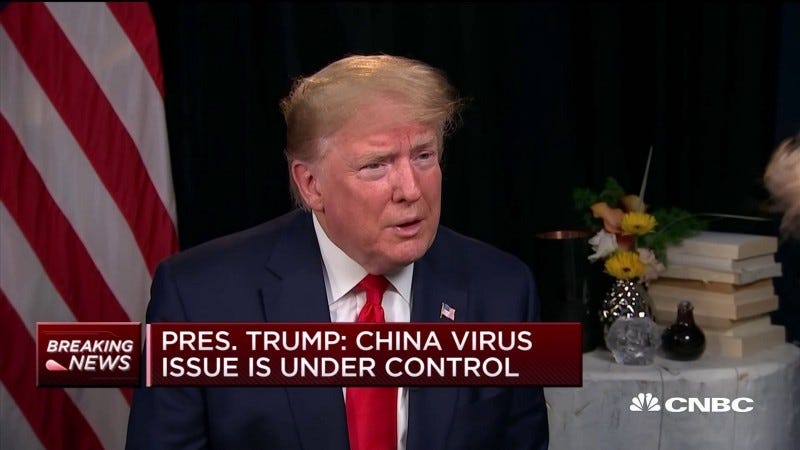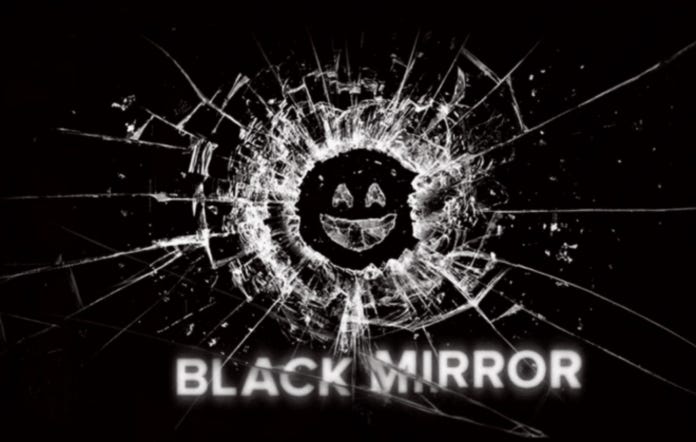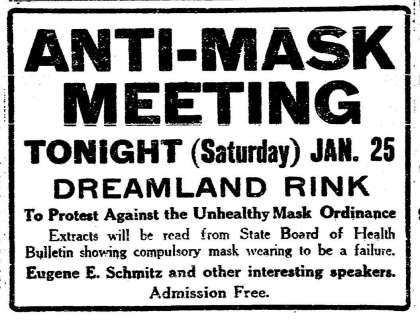Coronavirus: A Tale of Three Nations
How One Nation Got the Pandemic Response Perfect, Another Got it Right Early But Blew Their Lead and a Third Got It Totally Wrong
How One Nation Got the Pandemic Response Perfect, Another Got it Right Early But Blew Their Lead and a Third Got It Totally Wrong
With a whole year gone by since the pandemic started, it’s time to take a look at who got the response right and who got it totally wrong.
In many ways, the pandemic is the ultimate test of a nation’s intelligence, resourcefulness and adaptability. It’s a global experiment, with every country on Earth participating whether they like it or not.
Some countries passed the test with flying colors. Others got it right for a time only to fall apart late in the year. Still many more got it horribly wrong.
That’s despite the fact that every country on Earth started the race at the same time. They had the same information. They didn’t have exactly the same tools, but the most basic tools were available to everyone.
Scientists and disease control experts had studied the possibilities of an outbreak for decades and given everyone detailed playbooks to follow. We’d already seen deadly contagions like Ebola and SARs erupt in recent years, so we knew the threat was very real.
And still the results were wildly different.
How is it that every country started in the same place and still got wildly different results?
The answers boil down to culture, clear thinking, a bit of luck, but above all leadership.
The good news is that some countries got the response really right and the rest of the world can learn from them. We can learn from the big failures too. There’s a lot of countries to choose from but instead of covering them all, let’s talk about three countries with dramatically different results.
Taiwan
Germany
United States
One of them got it totally right, the second got it partially right, and the third got it totally wrong.
You can probably guess which is which but the reasons why might surprise you.
The good news is the modern world did a lot better than the ancient world and the industrial world with the Plague and Smallpox but the bad news is we still have a lot to learn when it comes to dealing with mankind’s most deadly and elusive enemy:
Viruses, fungi, bacteria and other invisible monsters have killed more humans throughout history than all wars and famines combined.
A close look at what societies got right this time and what they got wrong will help us beat back future outbreaks. And make no mistake, future outbreaks are coming. We’re too interconnected now, too woven together for disease not to spread globally.
We’ll start in the middle, with a country that showed a ton of early success only to squander it late in the game.
Germany
Germany came out of the gates swinging. They managed to flatten the curve early and have a very slow uptick of cases for most of the year.
As of late as Sept 2020 Germany had under 300,000 cases, up from only a 150,000 in April 2020. That was a remarkable result and made Germany the toast of the Western world, a thriving democracy in the heart of Europe that still managed to slow the rapid spread of the pandemic.
They benefited immensely from having a strong, well-respected Chancellor in Angela Merkel, who understood the science early because she’s an actual scientist. She earned her doctorate in quantum chemistry in 1986 and she’s ruled Germany since 2005. She also has broad appeal across party lines, with both liberals and conservatives continuing to back her across the vast majority of her time at the helm of the Germanic state, something Americans could only dream of in the last four years as they faced increasingly bitter polarization.
In classic German fashion Merkel took a consensus building, conservative, data driven approach to the pandemic. The German government reacted swiftly, with lockdowns, cutting off flights from everywhere, not just from places that were politically expedient. The US did the opposite, blocking only a few flights from China when the disease had long since spread beyond its borders, all while letting in whoever else wanted to show up with no quarantine policy. The government in Germany is well known for balanced budgets but they wisely took the chains off and spent hard and fast to boost the economy, shelling out to keep businesses alive as they got hit by the crisis.
After the initial lockdown, the country gradually opened up again and by late spring, cafes and even bars had reopened once more. Unlike in the US where protests against anti-pandemic rules ran rampant, protests were mostly muted and small across Germany, never more than a few thousand people at once.
It was a beautifully coordinated response that proved highly effective early on.
Over and over again when I looked at the data of who got what right, one thing became incredibly clear:
Countries that had clear thinking, realistic leaders did the best when it came to smashing the pandemic early.
It’s probably obvious in hindsight but without good leadership a country has zero chance of getting the response right. It’s like starting out in a blizzard naked. You’re just not going to make it no matter what else happens from there.
But as we’ll soon see, strong leadership is no panacea.
It’s one factor in a fast moving, chaotic system that has a million variables. Good leadership is simply not enough because even with good leadership Germany’s response started to break down in late fall and it’s been breaking down ever since.
There’s a famous phrase that every German knows “Ordnung muß sein.” It means “there must be order.”
Germany is a deeply hierarchical and orderly society. There are rules for everything. And people follow those rules.
I saw it first hand, living in Berlin. It’s not uncommon for a German to chase you down for crossing the street because a “don’t walk” sign was flashing even when there are no cars for 2 kilometers in each direction.
Because of that mask compliance was generally strong. In the early days of the pandemic, I was the only one wearing a mask, having secured n95 masks years before most people knew what they were, since I traveled so much. In a month, I saw masks everywhere, as new rules requiring masks in shops and city centers passed. Unlike in the US where masks turned into a battle for personal freedom, in Berlin I saw everyone from old to young wearing one.
While waiting in line at the post office one day, I saw a young punker, with a bright purple mohawk and a shirt decked with a picture of a woman giving the middle finger. He wore a mask too. Apparently, personal freedom and masks can go together if people don’t like getting sick or getting other people sick.
But the initial success didn’t hold.
Since October on it’s been a very different story.
Cases roared up the exponential curve, going from 295,530 on Oct 1 2020 to 1.6 million by Dec 26 2020, a massive and sudden surge. The country went back into lockdown “light” with restaurants still open but bars, brothels and gyms still closed. It didn’t work like it worked early in the outbreak and the country switched to a hard lockdown in late November, shuttering many businesses almost across the board, including restaurants except for take-away. It’s still under hard lockdown and it may get harder.
So far the lockdown hasn’t resulted in a massive closure of businesses but more and more businesses are struggling as they face many months without real income. It’s a slow decline because of Germany’s safety nets but it’s still a decline.
Unlike the US system, where losing your job could land you on the bread line, Germany has a much deeper and wider social net. The unemployed get 60% of their salary for a year, instead of the measly $600 max the unemployed get in the US, which is driving people to charity to get basic food needs met. The government also embarked on a widespread small and medium business sustainment system, paying businesses up to 70% of what they made the year before during the months they were closed down. They also offered incentives to business to keep people on the payroll instead of laying them all off.
When the safety net works, it’s great.
Workers are covered through hard times with a salary that keeps food on the table. It keeps workers from having to burn through all their savings just to stay in their apartments. Businesses take a hit but they don’t go broke. They can keep people working even as their doors close, when normally they’d have to cut headcount almost instantly to stay in business.
Germany wisely learned from the disasters leading up to WWII.
Perhaps nothing brought the Nazis to power more than a collapsing economy and a wave of middle class businesses closing all at once. Hitler got a mere 2.6% of the vote four years before being elected with almost 40% of the vote.
What was the difference?
A collapsed economy.
Keeping the economy on track is the key to keeping any society from falling prey to extremists who accelerate societal collapse with their deranged ideas.
But for all its social net success, Germany is also home to a great and unwieldy bureaucracy.
I’ve never seen a country so inundated with paperwork and rules. This obsession with rules and paperwork leads a lot of people to not get paid because they miss a deadline for some strange paper they didn’t know they needed to fill out. My partner and I talked to the owners of a fantastic new restaurant that a husband and wife couple opened in late 2019. They’re getting no government support because they had no revenue the year before. They fell into a black hole between rule, just the unlucky timing of opening their dream restaurant at the beginning of a black swan event.
Germany is also a “get permission” first society, versus the US which usually favors innovation and then regulation later. All the restaurants got shut down during lockdown and were only allowed to offer take-away if they had a permit in some areas of the country.

Instead of abolishing all permits, they kept the “permission first” approach going. The problem is that approach can’t scale.
There aren’t enough bureaucrats to process the huge surge in applications and even worse, Germany is almost comically backwards when it comes to the digital world.
It’s a society still obsessed with paper. Everything is done on paper.
My landlord has been locked out of the country since the beginning of the pandemic because he lives in another country. He’s not a citizen but he owns apartments here, which means he can’t get back into Germany. He got a new cell phone. The company wouldn’t send him the new activation link digitally. Instead, they insisted on sending a piece of paper in the mail to his apartment here, because that’s the one they have on record. I had to wait for it to arrive and then scan it in, so he can scan a QR code on his phone.
That digitally backwards approach backfired when the German government rolled out their centrally controlled contract tracing app that cost 22M Euros. People rightly bristled as they worried about the government knowing where they were every single second of every day, which is why very few people used it.
When we look at Taiwan, we’ll look at how to do contract tracing right, with a privacy preserving approach, but for now just know that people will remain skeptical of centrally controlled apps keeping track of their every move unless it’s their cell phone itself.
Germany — The Good, The Bad and the Ugly
Germany’s early success boiled down to a strong safety net, great leadership,a big treasury war chest, smart programs to protect businesses and workers, a consensus driven approach, as well as a rule based, orderly society.
Its later failure was ironically because of the same consensus and rule driven approach.
Businesses are struggling because they fall through the cracks of a slow and inefficient bureaucracy that can’t move quickly when it really needs to now. And consensus driven approaches often lack the true innovation and insight that a strong, individualist approach can deliver. The lockdowns haven’t worked the second time around. The numbers are still climbing but Germany seems to be out of ideas.
They are proposing harder lockdowns instead of cranking out FFP2 masks in factories or scuttling their heavy corona app in favor of a highly decentralized, privacy preserving app that everyone could get behind or something more innovative.
Its war chest also won’t last forever and neither will small businesses existing on the good will of the government.
Businesses fund government, not the other way around. No government can foot the bill for an entire economy forever, no matter how hard they try.
The German government’s approach worked, mostly.
Overall, Germany scores a C+.
It was a classically conservative approach. It was designed to get the economy through just long enough for biological innovation to take hold. Without the vaccine though, this approach wouldn’t have worked for two or three more years or longer. Eventually they’d run out of money and we’d see a wave of business collapse and much worse. They’ve already struggled to keep mega-state funded corporations, like Lufthansa airlines afloat.
We haven’t seen a wave of businesses collapse but that won’t be because the government saved the day over the long run, it’s because the scientists bailed out the world with a vaccine in record time. Without a strong vaccine, this strategy was a short term solution that would have flamed out over the long haul and is already showing signs of stress.
Taiwan
Of all the countries in the world that western society can learn from, Taiwan has the most to teach us.
The below graphic tells the story. That’s cases as of January 19 2021, NOT Jan 2020.
Taiwan is a kind of hybrid between east and west. It still has a powerful collectivist pull where people give greater value to the whole and family but it’s also got a strong entrepreneurial and individual spirit. Taiwan is the semi-conductor center of the manufacturing world. It moved from a martial law driven military dictatorship for 38 years, after WWII, to a democratic republic in the 1980s and its never looked back, rapidly building a highly agile democracy.
Despite never implementing a national lockdown, they recently celebrated 200 days with zero new cases.
What did they do so differently from the rest of the world?
They benefited from strong and innovative leadership, as well as a brilliant anti-disinformation campaign, highly effective policies, and a superior digital innovation platform, led by a brilliant and charismatic digital minister, Audrey Tang.
To start with, the country quickly blocked travel into the country from everywhere until they could get a handle on the situation. As they opened it back up they required mandatory quarantine for travelers. People coming in are required to stay in their hotel and they get a call from someone daily. They must install contract tracing software, so if people break quarantine, someone shows up at your door to ask why.
According to a report from the Berkman Klein Center at Harvard, people “quarantine…through the ‘Electronic Fence System,’ which uses cell phone location data to ensure that travelers do not leave their quarantine location. If a traveler violates their quarantine by leaving their house or hotel, the government will issue an automated text message warning to their cell phone to notify them to return home, as well as alerts to the relevant government authorities, ranging from the local police precinct and the local city government.”
But unlike the contact tracing apps many western powers tried to jam down the throat of their citizens, the Taiwan app doesn’t stream back detailed surveillance data to the government. The contract tracer is only accurate up to 15 meters. Authorities know you broke protocol but they don’t know you went to Starbucks and then a rave, where you paid with your credit card for two beers. It’s just enough for them to call you and make sure you stay in line and nothing more.
The Klein report goes further:
“Rather than using GPS tracking, the five major telecommunication companies in Taiwan work with the government to “triangulate the location of their cell phone relative to nearby cell towers.” The government claimed that although the Electronic Fence System is not as accurate as GPS tracking, it is less privacy invasive, and that this technology has drawn the interest of several other countries. Only the CECC [the country’s Center for Disease Control equivalent] is able to access the aggregated data from the Electronic Fence System. City officials are restricted to city-level information, and the police responding to quarantine alerts are only able to see an individual’s name, phone number and address.”
Germany could have used its privacy focused mentality to do the same.
One of the reasons they use so much paper is because Germans lived under the horror of the Nazis and then under the horror of the communists in East Berlin up until the 1980s. They know exactly what it means to have a total surveillance in society. Not having central records of everything is healthy instinct after living under decades of secret police monsters.
But because Germany isn’t a digitally forward nation, or one with a healthy, agile and innovation first approach, they couldn’t conceive of an app that’s both privacy preserving and keeps people safe so they bungled together a heavy handed, centrally controlled one that nobody used.
The Taiwanese also figured out how to deal with the more underground parts of society. They figured that if they shutdown clubs and adult entertainment centers, it would just push those things further underground and they’d loose visibility into the outbreak. They didn’t want to shutter those places either because that would just push the parties off the grid and officials would lose track of the outbreak fast.
They also knew that if they forced people to adopt a centrally controlled, contract tracing app that send back a constant stream of info about people partying and paying for sex nobody would adopt it. So they took an open source approach. They told underground businesses to come up with their own tracking system of face closure. The clubs and sex workers sprang into action and built their own double blind style systems with one time address, color coding and more to keep privacy but still allow them to notify people if things went wrong.
It worked. The underground businesses stepped up and made it happen.
Don’t underestimate how difficult it is for moralistic leaders to take an intelligent approach to the seamy side of life. It takes incredible foresight and a brilliant leadership team to understand all aspects of a society holistically and it’s incredibly rare throughout history.
In highly ideological or religious or culture war driven nations this is all but impossible because those forces blind leaders to parts of the population they think of as evil.
But if you can’t deal with reality as it actually is, rather than how you imagine it to be, you can’t deal with a pandemic.
Smart leaders deal with the underground parts of society practically rather than trying to hopelessly stamp it out while a virus is raging.
They realize that side of life will never go away and if they want to survive they have to view it realistically, which is all but impossible for most global leaders.
In an interview with NPR, Tang talked about how it worked:
“There was a case when a worker in an intimate drinking bar was diagnosed with COVID. She did not initially review the contact because of, you know, professional requirements. But, of course, that will hurt the reliable information requirement for contact tracing. And we did not, however, do any top-down, shutdown, takedown, lockdown of those places.
But rather, the people in the CECC, because they already had extensive prior experience working with HIV-positive communities — so they designed what we call a real contact system. So as long as people can be effective contacted and also social distancing requirements are met, no data is sent to the central government. And so they develop creative approaches such as leaving codenames, single-use email, pre-paid mobile phone numbers, hats with the plastic chuting to maintain physical distancing. And then they reopened.”
Beyond big data and contact tracing, the Taiwan government understood incentives really well. You get paid to stay in quarantine but if you break quarantine you get fined 1000x what they paid you so it pays to stay inside until you’ve proven you’re not caring the virus.
Don’t underestimate how hard it is to get incentives right.
Incentives are tricky. Pick the wrong incentives and people game the system.
It’s called the Cobra Effect, after a famous story from the turn of the century when the British government grew increasingly concerned about venomous Cobras in Delhi. They offered a reward for every Cobra turned in dead. At first it worked great and then enterprising folks started breeding Cobras to turn them in for bigger rewards. When the government found out they canceled the program. The entrepreneurs now turned their worthless Cobras loose in the woods, doubling the Cobra population.
The exact opposite of this intelligent approach to the underground happened in Germany. They shut down the big clubs and brothels (which are legal) in the country. In Berlin, the clubs are some of the most highly regarded in the world and people travel from all over to go to four or five day parties. When the clubs shut down, the parties shifted to people’s houses and into the woods. Police regularly busted illegal parties everywhere but the damage was done. The government just pushed partying underground and the virus continued to rage.
For prostitutes it was even worse. Working girls no longer had the protection of a safe and secure place to work, so they went back to practicing high risk meets in hotels and homes, effectively falling below the radar as they had risky contact with anonymous partner after partner, likely accelerating the spread just like traveling salespeople did in the early days of the pandemic.
Taiwan also understood the importance of wearing masks. While it was already fairly common to wear a mask on public transport that didn’t mean people did it across the board or did it well. The government figured it needed at least 2/3rds of the population to wear a mask to break the chain of transmission.
They used an open source, transparent approach to data to help get it done. In the early days of the pandemic they opened most government data with APIs so that citizen coders could go to work. Those coders rolled out over a 100 apps to help people, with apps “including maps showing which pharmacies still had supplies, visualizations of how many masks had been distributed and where, and voice assistants for the visually impaired,” according to Wired. They made sure people didn’t queue at a store for nothing, only to find masks were sold out.
But maybe Taiwan’s biggest success was combating misinformation.
In times of trouble, rumors and fear spread faster than a virus. Everything from utterly insane conspiracy theories, like the virus spreading via 5G towers, to anti-masks movements can quickly bombard people with so much crazy information that they give up and don’t know what to believe anymore.
In another piece in Wired, by Kate O’Flaherty, Tang talked about how the country enlisted “a cartoon “spokesdog”, a Shiba Inu named Zongchai, which translates science into funny memes.”
In other words, they countered misinformation with memes.
“Whenever there’s a trending rumor, we make sure there’s humor over rumor. Within two hours, we roll out two pictures, each with less than 200 characters and that goes even more viral than the disinformation,” Tang says. The idea is that people would see the disinformation and a funny clarification on the same day, she says. That way, after they wake up the following day, the long-term association will likely be “joy and humor”, rather than “anger and outrage”.
“At the same time, people actively identify and flag misinformation. CoFacts, a collaborative fact-checking chatbot spun up through a g0v project, allows those using end-to-end encrypted chat apps to send something they suspect is misinformation to be crowd-checked. Professional fact-checkers, such as the Taiwan FactCheck Center and MyGoPen, also play a role.”
You might think it’s hard to replicate something like this in a highly individualistic and selfish western world and you might be right but Taiwan still offers hope there too because Tang doesn’t see Taiwan as a particularly altruistic society. Instead she just works with human nature:
“We know wearing a mask alone doesn’t work, you have to wash your hands, too. We say, ‘You wear a mask to protect yourself from your own unwashed hands.’ This links hand sanitation and mask use together.”
Taiwan — Sane Policies, Enlightened Leadership
The last part of the Wired story leads us right back to incentives. If you link masks to altruism, like most Western governments tried to do with messages like “protect grandma,” “protect others,” and “it’s the right thing to do” people tune out.
As much as we love to believe people are altruistic, they’re selfish too. The Taiwan government knew to appeal to selfish interests first and that gave society the bonus of a collective benefit too. Appealing to the selfish is a classic strategy in history but it takes enlightened leadership to marshal the dark algorithms of human nature for the benefit of good.
You can’t fight human nature. If you try, it only backfires.
If anything characterizes the Taiwanese approach it’s realistic approach to human nature balanced with sane policies that work.
If Germany, got a C+, Taiwan gets the highest marks possible, a A+.
They crushed the curve. They didn’t use economy destroying lockdowns. They kept even the most secretive and vulnerable parts of society in line. They used trust, privacy and openness to win hearts and minds.
Every country on Earth can learn from them but I’m afraid they won’t because it takes a rare combination of the right people in power at the right time, people who can see clearly and who make good decisions based on reality instead of imaginary monsters in their own minds.
America Last
If Taiwan was an unqualified success, the United States was an utter failure in just about every way.
It was a failure across the board, a cultural failure, a government failure and a leadership failure. When people look back in history they can study the United States for exactly what not to do.
On Jan 1 2021, the US recorded 166,000 new cases. On New Years Eve, they recorded 234,000 new cases. They’ve been averaging 200K plus every day, ever since.
The next closest country was Brazil at 56,000.
Most other countries weren’t even close.
The United States had every single chance to get it right. They had a pandemic playbook, left by the last administration and a team in place to execute it. They had more resources, more money, more open information exchange and more digital infrastructure and digital innovation than almost anyone else on Earth.
And yet they still failed.
It started with their non-existent safety net. The US is known for having little to no social net. It’s a country built on the idea of exceptionalism. Work hard and you can make something of yourself is the American dream. The idea of socialism and safety nets is still a dirty word for much of America.
Believe me, I get it. While Germany has an amazing social net, they have brutally high taxes that I’m now paying. As much as 45% of your salary goes to your silent partner, the government.
But at least you get something for that money.
In the US for your 25–34% tax you get nothing but a tiny unemployment benefit and social security if you’re lucky enough to make it to old age and retire in the US.
The superb unemployment benefit in Germany kept many people out of poverty when the economy crashed. There’s also mandatory health insurance. It’s paid for on a floating scale. Richer folks pay more and it scales down as you make less. In the US there was backlash against a measly $800 tax for not getting insurance and the latest administration did everything in its power to crush the US attempt at a universal healthcare system by defunding and attacking it from every angle.
In the US, never has the horror of insurance tied to employment looked so brittle and downright sadistic. As millions of people crashed into poverty when unemployment surged to scary high numbers in August, they lost their health insurance and a COVID trip to the ICU with a ventilator could bankrupt them.
That measly little $600 in unemployment insurance left many people in the richest country in the world waiting in line to beg for food from food bank charities. At least Americans have proved a generous bunch, as charitable giving surged along with unemployment and people sliding into debt and poverty, which kept the crisis from spiraling out ever worse. But when the social net system is the equivalent of a Go Fund Me page, you’ve got big problems.
It never should have come to that and from the very beginning it was clear that something was terribly wrong with the American response to the pandemic.
It started with the CDC.
They failed with masks right out of the gate.
Worried about a run on n95 masks, they wanted to conserve as many of them as possible for front line workers, who faced exposure daily. If you can’t keep hospital personnel on their feet, it doesn’t matter how many ICU beds you have because there’s nobody to service them.
But instead of saying that they needed those masks for front line workers, they stupidly told people masks didn’t work.
That total disaster of a policy had a lasting impact that’s still destroying any chance to control the pandemic to this very day.
They warned that a mask would give people a “false sense of confidence.”
The belief that masks “don’t work” took hold and festered across American society. It didn’t matter that the studies showed masks “didn’t work” not because they’re ineffective, but because often people didn’t use them right like wearing them under their nose, or not washing their hands.
A 2008 study, published in the Journal for Infectious Diseases, showed that “in an adjusted analysis of compliant subjects, masks as a group had protective efficacy in excess of 80% against clinical influenza-like illness.”
Other studies show the same story again and again. People who don’t bother wearing the masks or wear them haphazardly, get sick. People who wear them right have a significantly lower risk of getting the flu or SARS-COV-2, aka COVID-19.
A study from 2009, shared on the CDC’s own website no less, concludes “We found that adherence to mask use significantly reduced the risk for ILI-associated infection.”
The studies also showed that only certain kinds of masks were really effective, like n95 masks, that get built from a storm of “infinitesimal plastic strands blown together to form a random thicket that, under a microscope, ‘[that’s] going to look like pickup sticks,’ says Nikki McCullough, 3M’s global leader for occupational health and safety,” in this article in Bloomberg. “If you’re a submicron particle, it’s quite the journey through there.”
In other words, N95 respirators are a maze of plastic that a virus can’t navigate easily.
If America had simply used its economic might to rapidly crank out factories and ramp up production of n95 masks like I recommended way back in April of 2020, they could have stamped out the virus’ wild spread.
It didn’t matter that the CDC later backtracked on masks and told everyone to wear them. It was too late. It had already turned into a cultural wedge issue.
While Taiwan was effectively countering misinformation with funny memes, the US had a master of disinformation and information warfare in charge of the country.
Instead of telling people to wear masks, Trump repeatedly does what he always does, hedge his bets and cast doubt. On April 23 he said:
“The C.D.C. is advising the use of nonmedical cloth face covering as an additional voluntary public health measure. So it’s voluntary. You don’t have to do it. They suggested for a period of time, but this is voluntary. I don’t think I’m going to be doing it.”
Now, I’m not one of those folks who think Trump is the second coming of the anti-Christ. The man was highly effective at getting his agenda across the line again and again whether you like that agenda or not.
But he also had exactly the wrong skillset to handle the pandemic.
He comes from a New Yorker school of bullshit that I understand well as an ex-New Yorker myself. If you can out bullshit the next guy then you win.
As relentless Trump promoter Scott Adams has told us repeatedly, Trump is a “master persuader” and a master of framing. Trump can frame almost any argument or idea in a way that makes other people’s arguments looks weak and ineffective. The left underestimated him as a mumbling, stumbling idiot who can’t talk right but he’s incredibly effective at simplifying issues, using repetition, and using words and images that stick in the mind like an annoying cartoon jingle you can’t forget “build the wall, Mexico will pay for it; Make America great again; Crooked Hillary.”
That works when you’re trying to do politics or get a real estate deal done.
What it doesn’t work on is a virus.
The virus doesn’t care if you’re a great bullshit artist.
Opinions mean shit to the virus. You might be able to effectively convince 50% of the people that gravity doesn’t exist but if those people go jump out a 100 story window they’ll learn very quickly that gravity doesn’t care what you believe. The same with the virus. You can believe it will just “just disappear, like a miracle” as Trump said in February 2020, but the virus didn’t care and it didn’t disappear.
While I agree with Adams that the ex-president had a way with words, unlike Adams I don’t see a method behind Trump’s madness. I don’t see a strategic genius making 3D chess moves. I just see someone who wants to win at all costs, no matter if winning the battle means losing the war.
In fact, it’s a lot like that famous line in Apocalypse Now when Colonel Kurtz asks Captain Willard:
“Are my methods unsound?”
“I don’t see any method at all, sir.”
If Trump really had a strategic genius behind all that bluster he would quickly have had the country wearing masks. He would have said something along the lines of “the stupid liberal, far left don’t want you to wear a mask and that’s why we’re going to wear the brightest, most star spangled banner covered masks of all time to show those losers they can’t tell us what to do” and 80% of his supporters would have fallen in line. Liberals already overwhelmingly believed in wearing masks and with that kind of brilliant framing America might have crushed the virus.
But instead he used masks and just about everything else related to science as a cultural wedge issue. In the end, Trump wasn’t a master persuader, he was a master at riding the shifting waves of right wing opinion like a weather vein. He could smell the way the wind was blowing and just go with it. He wasn’t guiding anything, he was just parroting what people were already thinking.
The failure at leadership and critical thinking ran deep. The top posts in the land were a revolving door as Trump repeatedly fired everyone and replaced them with loyalists who parroted his party line, instead of thinking for themselves, until he was surrounded by yes men and women and there was nobody left to tell the emperor his dick was hanging out because he had no pants.
In the early days of the pandemic, the president focused on the culture wars, shutting down flights from China, one of his favorite targets, and nowhere else, an utterly incompetent and ineffective strategy no matter how you slice it. While Taiwan closed every flight and quickly ramped up contact tracing and quarantine protocols, the president let infected people stream into the country from everywhere with no plan whatsoever, despite the massive level of border control in the US that could have easily been turned to helping track incoming passengers and enforcing quarantine.
He tried to do what he always does, use rhetorical tricks like calling COVID-19 the “China virus.” While the left got lathered up about the racism layered into that label, the phrase started working at the hypnotic, sub-verbal level of association that Adams is always running his mouth about on his coffee breaks from reality. Calling it the “China virus” is a way to associate the entire rise of China with that of a virus that’s spreading.
It might have worked, if the ex-president hadn’t vastly underestimated how fast the virus would spread. If the US had managed to contain COVID, he could have continued to call COVID the China virus and pivoted into more rants on how China is taking over the world.
But he underestimated the virus big time.
The US and the Lily Pad Problem
While Germany had a quantum chemist in charge, the US had a science-denying president who proudly “doesn’t read” in the top spot.
It’s no surprise he didn’t understand the lily pad problem and underestimated the exponential growth of the virus. The lily pad problem goes like this:
The farmer sees lily pads covering a quarter of his pond and thinks nothing of it before going on vacation. I’ll deal with it when I get back in a few weeks, he thinks.
But he comes back to find the whole pond covered.
That’s exponential growth. It’s sneaky. It ramps slowly and then explodes all at once.
Once it got out of control in the US it was too late.
The US had squandered any and every advantage they had.
Overall, the US gets a D-.
Why not an F?
Because America had one last Hail Marry that may have saved the world.
Always Do The Right Thing
The US had one thing going for it:
America still knows how to do big business and big deals.
The Trump administration wisely struck deals to buy up 100s of millions of doses of vaccines before they got approved. That helped the companies financing the vaccine revolution drive the vaccine to completion fast because they knew they were going to get paid.
It’s also American business that helped bring the incredible, new, cutting edge mRNA vaccines to market. Biontech and Pfizer were the first to get a vaccine approved in record time. Vaccines usually take a decade or more and the world had one designed, tested and delivered in under a year.
Biontech is a German company, founded by immigrants. As nations struggled with their various strengths and weaknesses of their societies, the virus put those traits to the test. On the strength side, the Germans had a liberal immigration policy that helped the founders of Biontech flourish, but on the weak side their markets were too conservative to find funding. Again and again Biontech found rejection from Germany financiers who want to bet on sure things only.
They found funding in America, with Pfizer partnering with them for distribution and sales, while Biontech did the R&D. America did what it does best, spend big on the future and innovation. American entrepreneurs love to place big, risky bets and they count on the last minute home run again and again to give them a breakout win.
It worked.
The traditional vaccine approaches in China and everywhere else all failed, while cutting edge, long shot biotech like mRNA succeeded. It was a stunning turn around for a technology that once cost a leading scientist her job but was now the foundation of a new kind of disease control. Authoritarian governments may have been quick with the iron fist to crush outbreaks but iron fists don’t lead to agile and out of the box thinking. That’s why no breakthroughs came out of countries that rule with the iron fist, even if some of them managed to crush the virus early with social controls (though their lack of transparency when it comes to communications makes that highly doubtful too).
In the end, American money and Germany’s intelligent immigration policy may have saved the world.
If we faced a world with no vaccines for years, let’s just call it like it is, we weren’t going to make it without tremendous disasters that built on the initial disaster of the pandemic.
We would have seen the exponential curve go absolutely ballistic and we’d have seen waves of economic collapse as small and big businesses failed in droves while governments struggled to prop them up.
The world was on a Black Mirror timeline, a collision course with horror. As the virus tore down society, we would have faced world war as hungry, angry people do what they always do when they’re hungry and angry:
Fight.
Nothing but a vaccine in record time was getting us off that very dark timeline. Germany’s approach was too conservative. It wouldn’t have lasted because eventually they would have run out of money. Taiwan is an island and islands fall if the world collapses in chaos and fire.
But instead, the scientists bailed us out.
We got off the Black Mirror timeline and we have a chance to get back to a normal world once more.
It will take most of 2021 to finish one of the largest undertakings in the history of man, a global rollout of a vaccine in record time. It’s a logistics, manufacturing, planning, politics, training and science problem all rolled into one. You have to manufacture it at scale, ship it, store it, train people, schedule people and more. It’s crazy but it’s happening.
Churchill once said, “the Americans always do the right thing, after exhausting every other possibility.”
Not anymore.
America floundered with incompetent leadership, culture wars, arrogance and outright stupidity run rampant.
In early days of the corona outbreak, I remember seeing stories about the anti-maskers during the 1918 pandemic and thinking, “Well, at least we’ve gotten smarter than that.”
We got worse.
“Two things are infinite: universe and human stupidity. But I’m not sure for the universe,” said Einstein (maybe, but who cares because it’s a great truism regardless of who said it.)
Humans can’t seem to get out of their way all too often in history.
But at least Americans still know how to do one thing, take risks and place big bets on tomorrow.
And that might have just saved us all in the end.
###########################################
I’m an author, engineer, pro-blogger, podcaster, public speaker. My upcoming book, Mastering Depression and Living the Life You Were Meant to Live tells the story of how I battle depression and still live a big, bold and beautiful life that I’m proud of every day.
###########################################
If you love my work please visit my Patreon page because that’s where I share special insights with all my fans.
Top Patrons get EXCLUSIVE ACCESS to so many things:
Early links to every article, podcast and private talk. You read it and hear first before anyone else!
A monthly virtual meet up and Q&A with me. Ask me anything and I’ll answer.
###########################################





